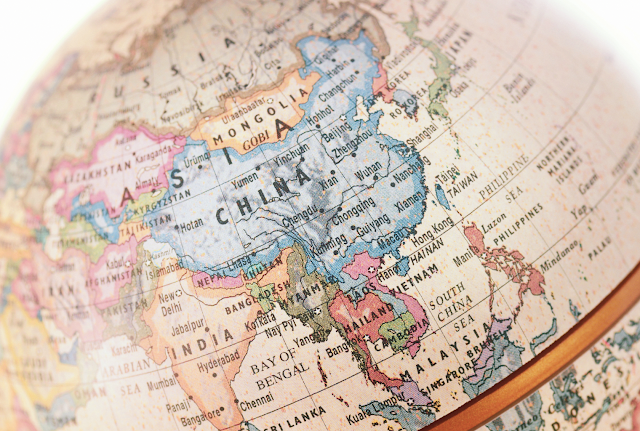How 5 Asian Countries Regulate Cryptocurrency
The Financial Stability Board has detailed how its member
countries regulate crypto assets, who the regulators are, and the scope
of their oversight. Most countries have more than one government body
monitoring and regulating different aspects of crypto activities. Among
the board’s Asian member countries, India is the only one with no legal
mandate to directly regulate crypto assets.
The main regulator is the Financial Services Agency (FSA) which supervises and conducts oversight of crypto exchange service providers. Crypto exchanges are required to register with the agency.
There are currently 19 registered exchanges with over 140 companies interested in entering the market, the regulator has shared with news.Bitcoin.com. The FSA also cooperates with a self-regulatory organization for added oversight. Additionally, the agency engages in international policy discussions on crypto assets and is currently discussing policies on initial coin offerings (ICOs).
Besides the FSA, two other government bodies are involved in the regulation of the Japanese crypto industry: the central bank and the Ministry of Finance.
The Bank of Japan established a fintech center within its Payment and Settlement Systems Department in 2016. The center conducts research on new technologies including cryptocurrency and how they could change existing financial services and structures. The Ministry of Finance is responsible for supervising and legislating crypto assets’ trade under the Foreign Exchange and Foreign Trade Act including the planning and execution of crypto-related taxation.
You can read the full note here:
India
Three regulators — the Reserve Bank of India (RBI), the Securities
and Exchange Board of India (SEBI) and the Ministry of Finance —
regularly attend the Financial Stability Board (FSB) meetings and G20
summits. The FSB is an international body that monitors and makes
recommendations about the global financial system. It has listed only
the RBI, the country’s central bank, as the regulator of the Indian
crypto space, clarifying in a report published Friday:
RBI does not have a legal mandate to directly regulate
crypto-assets. RBI’s current mandate permits it to assess financial
institutions’ exposure to crypto-assets and supervise their operations.
Within its mandate, the central bank has prohibited
financial institutions from dealing in “or providing services for
facilitating any person or entity in dealing with or settling”
cryptocurrencies, the FSB detailed. The three aforementioned regulators
are part of the panel headed by Subhash Chandra Garg, Secretary of the
Department of Economic Affairs, tasked with drafting the country’s
crypto regulation. According to the government, this panel is in its final stages
of deliberations. India’s crypto regulation was expected to be
presented to the country’s supreme court on March 29 but the court
adjourned without addressing the matter until July.
Japan
At the opposite end of the crypto regulatory spectrum, Japan legalized cryptocurrency as a means of payment back in April 2017 under the amended Payment Services Act.The main regulator is the Financial Services Agency (FSA) which supervises and conducts oversight of crypto exchange service providers. Crypto exchanges are required to register with the agency.
There are currently 19 registered exchanges with over 140 companies interested in entering the market, the regulator has shared with news.Bitcoin.com. The FSA also cooperates with a self-regulatory organization for added oversight. Additionally, the agency engages in international policy discussions on crypto assets and is currently discussing policies on initial coin offerings (ICOs).
Besides the FSA, two other government bodies are involved in the regulation of the Japanese crypto industry: the central bank and the Ministry of Finance.
The Bank of Japan established a fintech center within its Payment and Settlement Systems Department in 2016. The center conducts research on new technologies including cryptocurrency and how they could change existing financial services and structures. The Ministry of Finance is responsible for supervising and legislating crypto assets’ trade under the Foreign Exchange and Foreign Trade Act including the planning and execution of crypto-related taxation.
You can read the full note here:




Comentarios
Publicar un comentario